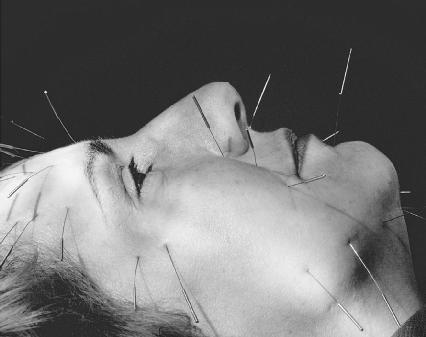Insomnia - Treatment
Treatment of insomnia first requires finding out the factors that are causing the problem. Removing those factors often leads to a solution for insomnia.
Change in Behavior
People can try a number of things to relieve their insomnia. They should go to bed only when sleepy and use the bedroom only for sleep. Other activities, such as reading, watching television, or snacking, should take place in a different room. If they are unable to go to sleep, they should go into another room and do something relaxing, like reading. Watching television is usually not a relaxing activity as television programs often make people more excited. People should go back to bed only when they feel tired.
People with insomnia should set the alarm and get up at the same time every morning, whether or not they had a good night's sleep. In this way, they establish a regular sleep-wake pattern. They should avoid taking naps during the day. If a nap is necessary, it should be taken early in the afternoon for no more than thirty minutes.

One successful form of treatment is called sleep-restriction therapy. A person first determines how long he or she can sleep at night. The person then remains in bed no longer than that length of time. Each night, the time spent in bed is increased slightly. Under this program, the person gets a little more tired each night, and his or her chance of sleeping improves.
Drug Therapy
The simplest way to deal with insomnia is to use drugs. Sedatives, tranquilizers, and anti-anxiety drugs can help a person sleep, but the use of drugs has some serious side effects. First, they may become habit-forming. A person may get to the point where sleep is possible only if he or she takes the drugs. Also, drugs become less effective over time. A person may have to take more and more of a drug to get the same result. Also, drugs can make a person feel groggy during the day. To avoid these problems, drugs should be used to treat insomnia only with a doctor's advice and under very strict supervision.
Other Measures
Relaxing before going to bed can help a person fall asleep faster. People can learn to substitute pleasant thoughts for unpleasant ones. This technique can reduce the effect of depression, anxiety, and other feelings that prevent people from sleeping properly. Audiotapes can also help a person relax.
Changes in diet and exercise routines can help. Certain foods tend to interfere with sleep and should be avoided in the evening. These foods include coffee, tea, colas, and chocolate (all of which contain caffeine), and alcohol. Alcohol makes a person sleepy at first, but a few hours later it has the opposite effect.
Maintaining a comfortable bedroom temperature, reducing noise, and eliminating light are also helpful. Regularly scheduled morning or afternoon exercise can relax the body.
Alternative Treatment
Many alternative treatments have been suggested for treating the symptoms of insomnia and its underlying causes. Practicing relaxation techniques before bed can help a person fall asleep and sleep more deeply. These techniques include meditation; breathing exercises; and a warm bath that contains rose, lavender, marjoram, or chamomile.
Eating a healthy diet rich in calcium, magnesium, and B vitamins can also be beneficial. Eating a high-protein snack like yogurt before going to bed is also recommended. Some people find that a cup of herbal tea made with chamomile, hops, or St. John's wort helps them relax. Acupuncture (a Chinese therapy that involves the use of fine needles) and biofeedback (therapy that involves behavior modification) have also proved helpful.

Comment about this article, ask questions, or add new information about this topic: